Our editors independently select these products. Making a purchase through our links may earn Well+Good a commission
Translating a feeling into words on paper is one way to empty your mind of it—to give the idea a physical container, so to speak. But in many cases, writing thoughts down in a gratitude journal can be just as effective a strategy for filling your mind up with them by encouraging you to re-live experiences, and, in turn, remember them more clearly. (If you’ve ever scribbled a note to self or a grocery list, you already know the power of hand-writing something for memory.)
Experts in This Article
Chief Wellness Officer at CIVANA Wellness Resort &
licensed psychologist with doctorate in counseling psychology in New York
That’s precisely where gratitude journaling comes into play, too, as a means for embracing gratitude more readily and deliberately. And the best gratitude journals encourage you to do just that by way of clear prompts and thought-scanning techniques.
Best gratitude journals at a glance:
- Best overall: Promptly Gratitude Journal ($29)
- Best for busy people: The Five Minute Journal ($27)
- Best for forgetful people: Calendar of Good: A Gratitude Calendar ($24)
- Best for kids: Today Is Great: A Daily Gratitude Journal for Kids ($5)
- Best for creative people: Tiny Buddha’s Gratitude Journal ($16)
- Best variety of gratitude prompts: The 5-Minute Gratitude Journal ($6)
- Best for a guided gratitude practice: A Life of Gratitude ($11)
- Best for in-depth entries: Papier Daily Gratitude Journal ($32)
- Best for long term: The Happiness Project One-Sentence Journal ($14)
- Best for short term: The 90-Day Gratitude Journal ($10)
- Best for design lovers: Poketo Gratitude Journal ($28)
- Best workbook: The Gratitude Explorer Workbook ($13)
- Best budget buy: The One-Minute Gratitude Journal ($7)
- Best starter set: Ban.do Wellness Workbook ($19)
Benefits of keeping a gratitude journal
Essentially, a gratitude journal is just what it sounds like: a place to record whatever it is you’re grateful for. While doing so, you’re creating a happy time capsule of positive reflections and devoting brain power to turning those thoughts into words. “Gratitude journaling shifts our attention to the most positive and healing experiences in our lives, and pushes us to stop our tendency to ruminate and fixate on only what’s wrong,” says psychologist Snehal Kumar, PhD.
Gratitude journaling also helps us recognize the many things we have to be grateful for—which is beneficial to our well-being in more ways than one. “When we genuinely appreciate what we already have, our brains release happiness neurotransmitters like dopamine and serotonin, which can reduce symptoms of anxiety and decrease feelings of loneliness,” says Amanda Grant, Chief Wellness Officer at CIVANA Wellness Resort & Spa. Each day at this resort ends with a gratitude circle that’s open to all guests and team members.
“The main reason we chose to end the day with gratitude, specifically, is because it can lead to more effective sleep, which boosts mental health,” she says. Research backs up that assertion: A small 2011 study in Applied Psychology1 of 41 college students found that when they adopted a gratitude practice each night for a week, they had less worry before bed, as well as improved sleep quality.
But the health benefits of practicing gratitude extend far beyond sounder snoozing. A January 2013 study in Personality and Individual Differences2 showed that more grateful people are also more likely to report better physical health, while a July 2017 study in Scientific Reports3 found that a gratitude practice may have the power to improve both emotional regulation and self-motivation by way of activating certain brain regions and mediating heart rate.
“Journaling, unlike some other gratitude practices, gives us a lot of hard data, which can be really helpful on tough days.”—psychologist Snehal Kumar, PhD
Even beyond these gratitude upsides, though, the specific practice of gratitude writing was shown in a March 2016 study4 to boost the mental health of people who were already seeing a therapist—which just proves how supportive keeping a gratitude journal can really be. “Journaling, unlike some other gratitude practices, gives us a lot of hard data, which can be really helpful on tough days,” says Kumar. “This data can also illuminate themes about what’s important to us, which can help us make better decisions for ourselves and our loved ones in the future.”
How to start a gratitude journal
While many of the journals we’ve included here make it easy to dive in, starting a gratitude journal is often first about finding a format that works for you. For example, you may like a more freeform journal that allows you to let thoughts flow, or a structured format to keep track of your goals. Or you may turn to technology for all the things, and gratitude doesn’t have to be any different: Apps like Grateful (Apple), Presently (Android), and Delightful (Apple and Android) offer simple tools for engaging with gratitude right from your phone.
“Truly listen to what comes to mind, and give yourself permission to write it down.”—Snehal Kumar
To help turn journaling into a habit, Grant suggests picking a specific time of day for gratitude journaling, whether that’s in the morning with a cup of coffee, at night before bed, or during a transitional moment between work and any after-work obligations. And then, when you’re ready to write, aim to drop any preconceived notions of what gratitude could or should look like—in order to avoid forcing yourself into a practice where you’re merely pretending to be grateful, says Kumar.
“Truly listen to what comes to mind, and give yourself permission to write it down, even if it’s as simple as ‘I’m grateful I tried this practice today as a way to offer care to myself.'”
In that vein, the positive prompts of the best gratitude journals can provide helpful jumping-off points—so you’re not stymied by the utter emptiness of a blank page (which I can tell you, as a writer, never ceases to be daunting). Read on for the gratitude journals for which we’re, well, endlessly grateful.
Here are the 14 best gratitude journals for beginning (or continuing) a conscientious gratitude practice

Best overall: Promptly Gratitude Journal — $29.00
A blend of weekly themes and daily prompts makes this Promptly journal adaptable to whatever cadence of gratitude practice you like. Not to mention, it has a whole bunch of extra lined pages throughout, in case you’re a fan of going long-form, and it’s pretty enough to leave out on any table or counter for whenever inspiration strikes.
Pages: 208
Pros
- Contains daily and weekly prompts
- Extra lined pages for free writing
- Linen cover
Cons
- Linen cover isn’t super durable
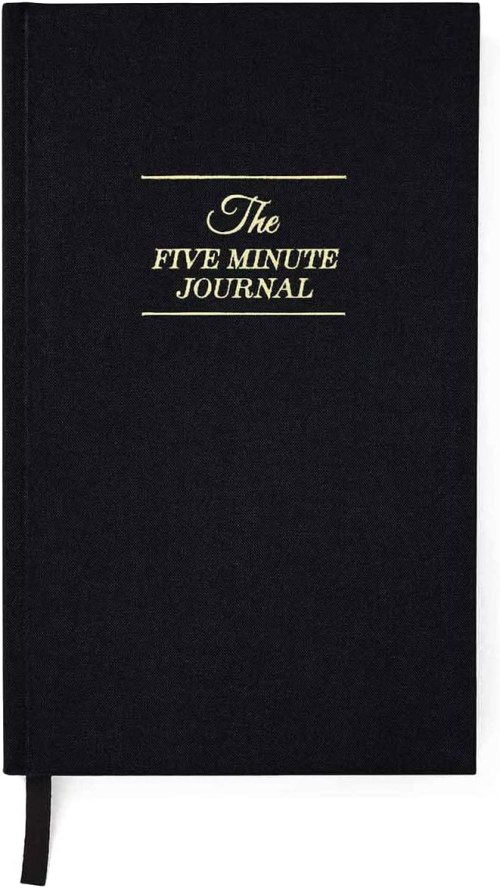
Best for busy people: The Five Minute Journal — $27.00
A gratitude journal that takes only 5 minutes to complete? Say no more. The best-selling Five Minute Journal is a go to for new and experienced journalists alike because of the accessible, easy to follow layout, and thought-provoking prompts. Each open-dated page of this daily journal features 5 prompts—the usual “What am I grateful for today?” and others like, “What would make today great?” and “What did I learn today?”—along with inspirational quotes to help propel you along your gratitude journey.
Pages: 180
Pros
- Flexible, open-dated layout
- 5 prompts for every entry
- Plastic-free
Cons
- Reviewers say the cover gets dirty easily
- Low quality binding according to some reviews
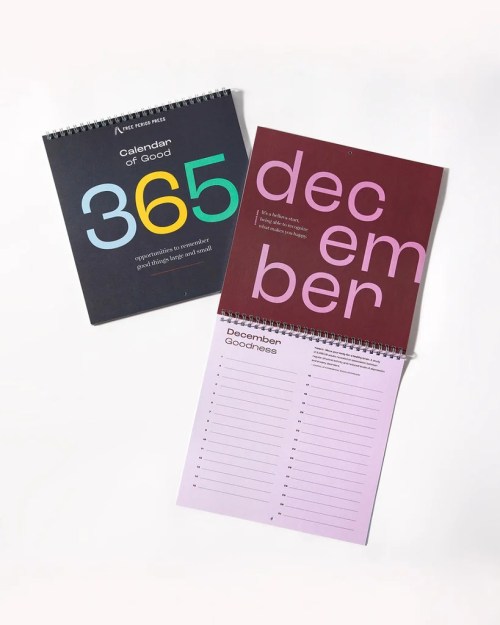
Best for forgetful people: Calendar of Good: A Gratitude Calendar — $24.00
Take your wall calendar, and make it a gratitude journal, and you’ll have a Calendar of Good. This unique, spiral-bound wall calendar has a line for every day of the month, so you can record what you’re grateful for each day and get a big-picture view of your monthly practice. This is a great gratitude “journal” for those who are just starting out their practice and can use the helpful reminder to find the good in each day. It even has yearly reflection pages to help you sum up the highlights of your year!
Pages: 12 plus intro and end-of-year reflection pages
Pros
- Unique calendar format
- Helpful for beginners who could use the reminder
- Includes yearly reflection pages
- Simple, easy to follow list format
Cons
- Doesn’t include in-depth prompts
- May not have enough writing space
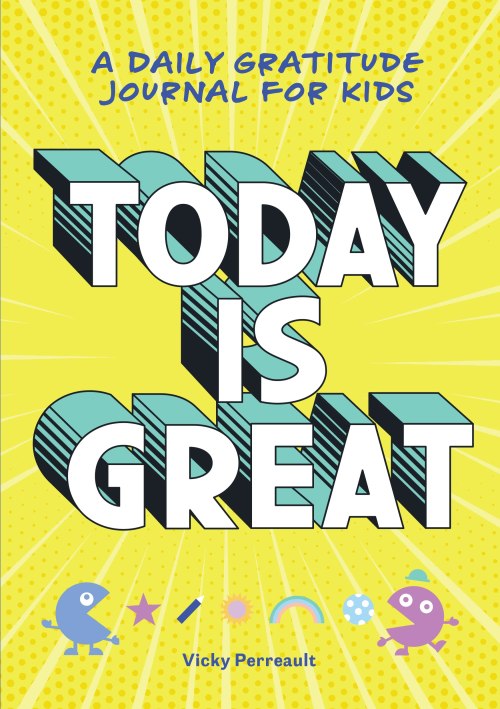
Best for kids: Today Is Great: A Daily Gratitude Journal for Kids — $5.00
This kid’s gratitude journal features fun and engaging daily entries, fun challenges and activities to help support their journey (like writing thank you notes to someone who’s helped them) and brief, open-ended prompts to help them reflect on every week. The colorful layout and playful character illustrations will make this a journal the kids in your life will want to pick up every day!
Pages: 112
Pros
- Designed specifically for kids
- Great opportunity to bond
- Fun challenges and activities
- Daily entries and open-ended weekly prompts
- Provides enough space for writing and drawing
Cons
- Kids may benefit from more free-writing space, according to reviews
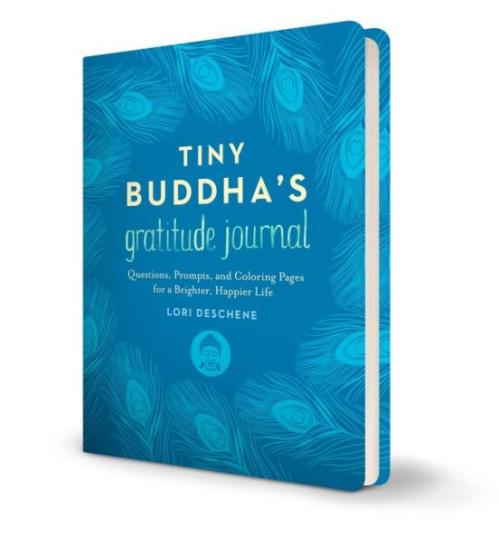
Best for creative people: Tiny Buddha's Gratitude Journal — $16.00
Anyone with an artful bent will vibe with this gratitude journal, which includes not only writing prompts but coloring (!) pages. Designed to get your creative juices flowing, these images depict everyday things worth being grateful for—but that are all too often overlooked. And they’re accompanied by space for written reflection, too, to complement the prompts sprinkled throughout the rest of the book.
Pages: 160
Pros
- Includes writing prompts and coloring pages
- Great for creative people
Cons
- Poor quality paper, according to Amazon reviews
- Insights/prompts may be too simple
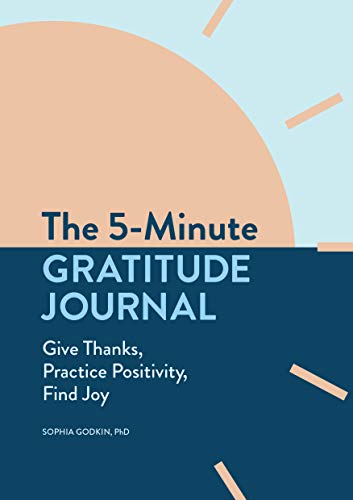
Best variety of gratitude prompts: The 5-Minute Gratitude Journal — $7.00
Striking a balance between the more streamlined one-sentence or one-minute version of a gratitude journal, and the more involved workbooks, this option is unique mostly for its varied daily prompts. The four thought-starters on each day’s entry are slightly different from the next (e.g., “A quality of one of my closest friends that I absolutely love,” or “Something that worked out much better than I’d hoped”) but cover recurring themes, so they tell a cohesive gratitude story by the time you’ve completed them all.
Pages: 132
Pros
- 4 prompts for each daily entry
- High quality paper
- Easy to fill out
Cons
- Not enough space to write, according to reviews
- Prompts get repetitive
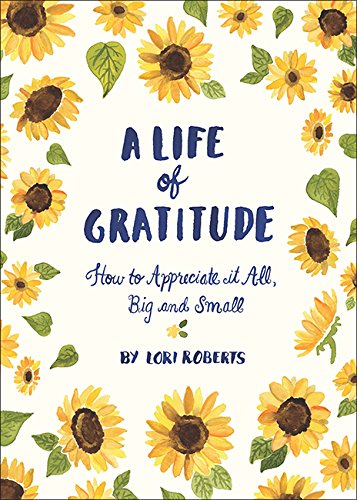
Best for guided gratitude practice: A Life of Gratitude — $11.00
If you’re looking for more guidance—and you’re willing to devote more time to your gratitude practice—you’ll vibe with this comprehensive gratitude workbook. Beyond prompting you to record what you’re grateful for, it has suggestions for more introspective thinking, like “How does the color grey make you feel? And what are your favorite grey things?” to “What books have most shaped who you are?” The idea behind this creative task is uncovering the things you may not have realized are most supportive to you in life.
Pages: 224
Pros
- Encourages more introspective thinking
- Great for a guided gratitude practice
- Creative prompts
Cons
- Prompts may get repetitive according to one review

Best for in-depth entries: Papier Daily Gratitude Journal — $32.00
If you’re looking for a journal that provides prompts to help you go a little deeper, this daily gratitude journal by Papier is for you. Not only does it include daily reflections and check-ins that help you track your personal growth, but it also includes several grounding exercises for when you’re feeling a little too stressed or anxious to dive straight into journaling. The journal is designed to help you over the course of five months, and has a sleek outer design that you can display on any coffee table or nightstand.
Pages: 96
Pros
- Includes daily affirmations and ground exercises
- Hardcover
- Sleek design
Cons
- Only has 96 pages
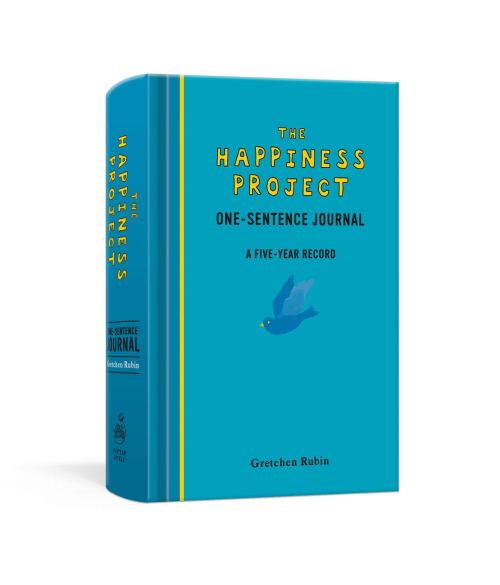
Best for long term: The Happiness Project One-Sentence Journal — $14.00
Happiness expert Gretchen Rubin developed this gratitude journal as a way to reflect on singular positive moments each day for five years—effectively creating a time capsule of entries that can take on a particular feeling or meaning over time. “Because you’re limited to writing a single sentence each day, keeping up the practice feels very manageable, even if you’re busy,” says Rubin, who recently launched the Happier App focused around positive habit-building.
Pages: 368
Pros
- Only requires a single sentence a day
- Easy to keep up with
- Covers 5 years
- Quotes on every page
Cons
- Doesn’t lend itself to free-writing
- Doesn’t contain in-depth prompts
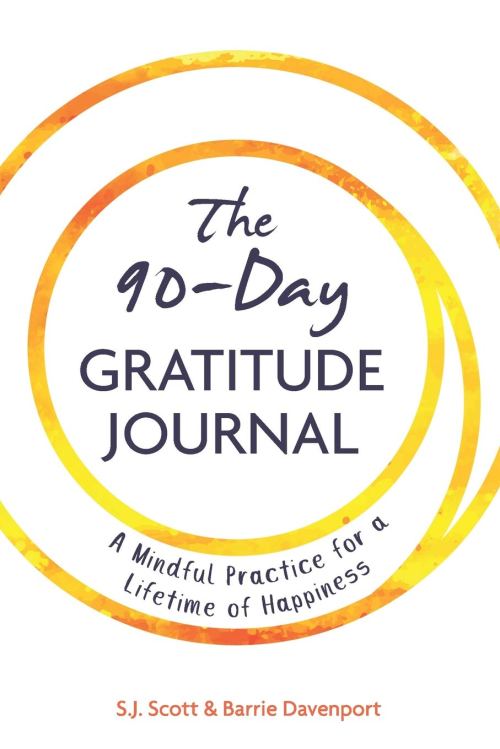
Best for short term: The 90-Day Gratitude Journal — $10.00
This is a journal that’ll keep you on your toes. It has three prompts for each of 90 days, but while two remain the same each day, the third is a wild card centered on a particular aspect or element of your life—like “What’s one thing you learned this week?” or “What is one thing you like about your city?” The range of questions keeps you coming at gratitude from all different angles.
Pages: 121
Pros
- Wild-card prompts keep it fresh
- Short-term layout is very maneagable
Cons
- Reviewers say it doesn’t provide enough space
- Might be too simple for some

Best for design lovers: Poketo Gratitude Journal — $28.00
The only thing more uplifting than this Poketo journal’s colorful cover, are the thoughtful gratitude exercises inside. This year-long gratitude journal features straightforward daily gratitude lists (“Today I am grateful for…”), along with weekly gratitude reports consisting of more in-depth prompts and inspiring quotes to help guide your practice. And it’s open-dated, so you can pick it up at your leisure.
Pages: 128
Pros
- Contains daily and weekly prompts
- Extra lined pages for free writing
- Made with eco-friendly materials
Cons
- The material may not be as durable
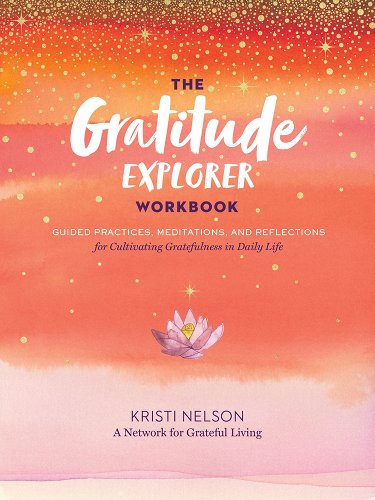
Best workbook: The Gratitude Explorer Workbook — $13.00
As its explorer name signals, this gratitude journal takes you on a true journey, from start to finish. A series of writing prompts gets more introspective and focused as you move through the book, and they’re interspersed with guided meditations, gratitude exercises, and inspirational messages to offer a thoughtful, reflective break amid all the writing. It also comes with postcards, affirmation stickers, bookmarks, and other paper goods, making it an ideal gift for a loved one who could use a little more positivity in their world.
Pages: 128
Pros
- A guide and journal in one
- Includes guided meditations and exercises
- Includes postcards and stickers
Cons
- No space to free write
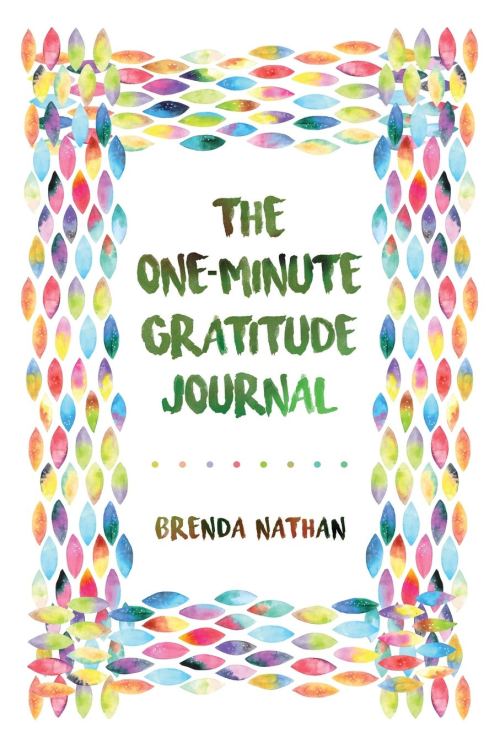
Best budget buy: The One-Minute Gratitude Journal — $7.00
The whole premise of this gratitude journal is simplicity: Each entry prompts you to write down three to five things you’re grateful for in just a few short lines, which are followed by an inspirational quote for moral support. And on the top of each entry, the date line is left blank, so you can add it in, rather than having a designated slot for each day; that instantly helps take the pressure off of missing a day here or there, because you won’t have to skip any pages if you do.
Pages: 112
Pros
- Affordable
- List format is easy to follow
- Open-dated
- Inspirational quote on every page
Cons
- Doesn’t contain prompts
- List layout is very basic
- Low-quality paper, according to reviews

Best starter set: Band.do Wellness Workbook — $19.00
Whether you are new to journaling or not, this wellness workbook set from Ban.do is sure to help you feel motivated and happy about recording the things you’re most grateful for in life. The colorful, interactive workbook is filled with pages to scribble your thoughts, stay on track with your daily health and wellness habits, and prioritize your mental health and stress-relief strategies. The book is even split into five colored sections to each represent new levels in your personal growth journey!
Pages: 280
Pros
- Guides your gratitude practice for specific areas of life
- Contains blank pages for free writing
- Includes an affirmation wall sheet
- Convenient purse-size
- Flexible layout
Cons
- Only contains 50 gratitude sheets and 50 guided sheets
Want to be the first to hear about the latest (and greatest) SHOP product drops, custom collections, discounts, and more? Sign up to have the intel delivered straight to your inbox.
Digdon, Nancy, and Amy Koble. “Effects of constructive worry, imagery distraction, and gratitude interventions on sleep quality: A pilot trial.” Applied Psychology: Health and Well-Being, vol. 3, no. 2, 24 May 2011, pp. 193–206, https://doi.org/10.1111/j.1758-0854.2011.01049.x.
↩︎Hill, Patrick L et al. “Examining the Pathways between Gratitude and Self-Rated Physical Health across Adulthood.” Personality and individual differences vol. 54,1 (2013): 92-96. doi:10.1016/j.paid.2012.08.011
↩︎Kyeong, Sunghyon et al. “Effects of gratitude meditation on neural network functional connectivity and brain-heart coupling.” Scientific reports vol. 7,1 5058. 11 Jul. 2017, doi:10.1038/s41598-017-05520-9
↩︎Wong, Y. J., Owen, J., Gabana, N. T., Brown, J. W., McInnis, S., Toth, P., & Gilman, L. (2016). Does gratitude writing improve the mental health of psychotherapy clients? Evidence from a randomized controlled trial. Psychotherapy Research, 28(2), 192–202. https://doi.org/10.1080/10503307.2016.1169332
↩︎
Sign up for the Well+Good SHOP Newsletter
Get exclusive deals on wellness, beauty, fitness, and food products that have been hand-picked by our editors.
Got it, you've been added to our email list.











